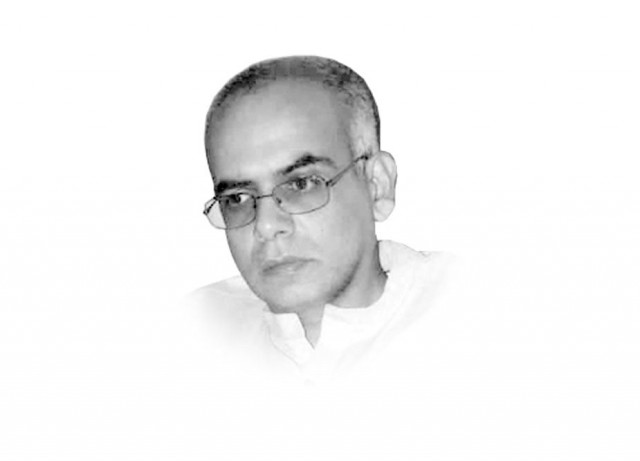Child labour in the surgical sector
Many of the problems exist in informal surgical instrument workshops

The writer is a development anthropologist. He can be reached at ali@policy.hu
However, the important question is who is to blame for child labour and other exploitative labour practices. In this above instance, NHS Supply Chain, which is one of the largest suppliers to the UK health service, has shifted blame to manufacturers used by its suppliers in Pakistan. Blame shifting cannot solve problems of labour exploitation, however, which are an outcome of a much broader global production system. Under the convenient label of lower labour costs, multitudes of workers across the developing world are subjected to long hours, under unsafe conditions and measly pays. It is these exploited workers, including children, who produce varied items exported to consumers in Western markets, including those branded by multinational corporations.
Having done research on the surgical manufacturing sector in Pakistan, I have had the chance to see different aspects of this problem firsthand. While pay and work conditions are said to have improved in some larger factories since the problem of child labour in the surgical sector first came to light in 2008, serious problems still plague the sector.
Many of the problems exist in informal surgical instrument workshops, which are cramped, inadequately lit and pay workers low wages. Informal surgical workshop employees use grinders to work on metal instruments without any protective gear such as goggles, earphones or masks. Such unsafe working conditions often result in children and also older workers contracting asthma and other respiratory problems due to metal dust inhalation.
Under Punjab’s laws, children younger than 18 are banned from working in ‘hazardous industries’, while children under 14 cannot work at all. Children around the age of 12 have been found making surgical tools for export at several such workshops for a daily wage of around Rs100.
Britain is the third-largest buyer of surgical instruments from Pakistan, and a British ban on import of surgical items from the country would be a major blow for the industry. The Surgical Instruments Manufacturers’ Association of Pakistan claims that child labour accusations are a conspiracy to block them out of export markets. The surgical industry is struggling since it lacks direct links with purchasers. Pakistani surgical manufactures thus provide their products to vendors in other exporting countries, which first source products from Sialkot, and then export them to the world market.
The fact that Pakistani manufacturers do not have significant profit margins is a legitimate problem, which compels them to cut corners, since they need to provide products to mediators at much lower prices. Local manufacturers in turn outsource work to informal workshops which receive only a minuscule portion of the revenue, while outsourcing importers make large profits.
Part of the problem of exploitative work environments in the surgical manufacturing sector, where children are also employed, can be attributable to small profit margins. However, increased profit margins may not necessarily end labour exploitation on its own.
The association of local surgical manufacturers must do more to assure that the informal sector workshops which work with larger local surgical manufacturers work will comply with basic occupational safety standards, that they pay their workers fairly and that they do not employ children. Overseas purchasers should also not be allowed to shrug responsibility. They must be held more accountable for labour exploitation in their supply chains, so that they begin to pay this issue as much important as they do to the quality of the products that they source from poorer countries like Pakistan.
Published in The Express Tribune, March 9th, 2018.
Like Opinion & Editorial on Facebook, follow @ETOpEd on Twitter to receive all updates on all our daily pieces.















COMMENTS
Comments are moderated and generally will be posted if they are on-topic and not abusive.
For more information, please see our Comments FAQ